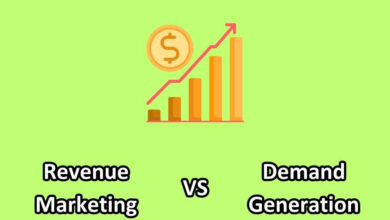In the arena of governance, two opposing forces have clashed throughout history – Democracy and Dictatorship. These two systems are like the yin and yang of politics, representing contrasting ideologies that shape nations’ destinies. While one celebrates freedom, equality, and citizen participation, the other asserts control, dominance, and centralized power. Join us on a thrilling journey as we delve into the Battle of Two Systems: Democracy vs Dictatorship. Prepare to be captivated by tales of liberty’s triumphs against oppression’s iron grip and discover what lies at stake in this eternal struggle for the soul of society!
The main difference between democracy and dictatorship lies in how power is exercised. In a democracy, power is vested in the people, and leaders are elected by the people to represent them. In a dictatorship, power is held by one person or a small group of people who have seized control through force or intimidation.
Democracy Vs Dictatorship (Comparison Chart)
| Democracy | Dictatorship |
|---|---|
| Democracy is a form of government in which power is vested in the people and exercised through elected representatives. | A Dictatorship is a form of government where one person or party has absolute control over the citizens and their affairs. |
| In this system of government, leaders are chosen by the people through free and fair elections. | In a dictatorship, a single leader or party has absolute authority over all citizens, and decisions are made without consulting the people. |
| In a democracy, rights are guaranteed to all citizens by law, including freedom of speech and expression. | In a dictatorship, rights are often restricted or denied, including freedom of speech and expression. |
| In a democracy, laws can only be changed with a majority vote from the people’s representatives. | In a dictatorship, laws can be changed at any time by the leader or ruling party. |
| In democracies, multiple political parties can exist peacefully as part of the democratic process. | In this system of government, there is no space for opposition; dissent is suppressed. |
| In a democracy, individuals can express themselves freely through voting, protests, and forming political parties. | In a dictatorship, there is limited freedom as individuals must follow rules set by the leader or party in power. |
| In a democracy, leaders are held accountable through elections and other means. | In dictatorships, leaders are not accountable to the people or held responsible for their actions. |
What is Democracy?
Democracy is a form of government in which the people have a say in the decisions that affect their lives. This is usually accomplished through elected representatives who make laws on behalf of the people. Democracies value individual rights, free and fair elections, equality before the law, respect for minority opinions, accountability, and transparency.
Pros and Cons of Democracy
Pros of Democracy:
- Freedom of Expression: Democracy allows citizens to voice their opinions without fear of oppression or retribution from the government. This freedom of expression enables citizens to express their views on important social, economic, and political issues.
- Equality: In a democracy, everyone is treated equally regardless of race, religion, gender, or financial status. The rule of law also ensures that no one is above the law and everyone is held accountable for their actions.
- Participatory Politics: In a democracy, people are given the opportunity to participate in civic life by voting in elections and taking part in debates on topics concerning the nation’s future. This active involvement in politics helps to create an informed citizenry that can make educated decisions about which candidates and laws should be supported or opposed.
- Fundamental Rights: Democracy provides citizens with fundamental rights such as freedom of speech, assembly, and religion as well as the right to vote and have a say in how their government is run.
- Stability: Democracies tend to be more stable than other forms of government since the people are actively involved in decision-making. This helps to ensure that the government is accountable to its citizens and is less likely to engage in aggressive foreign policies or large-scale civil unrest.
Cons of Democracy:
- Lack of Efficiency: Democracies can often be slow when it comes to making decisions due to the need for debate and consensus building. This can lead to delays in passing important legislation or addressing urgent problems which can be detrimental to the nation’s progress.
- Special Interest Groups: Special interest groups such as lobbyists have an outsized influence on the democratic process due to their financial resources and access to key decision-makers. This gives them an unfair advantage over ordinary citizens who may not have the same level of resources or influence.
- Costly Elections: Holding regular elections can be costly as governments must pay for advertising, campaigning, and other expenses associated with running a successful election campaign. These costs can place a strain on public finances, particularly in countries with limited resources.
What is Dictatorship?
Dictatorship is a system of government in which one person has absolute power. Dictatorships are often characterized by totalitarianism, complete control of the government by the dictator and his or her supporters. In some cases, the military plays a significant role in supporting the dictator.
Dictatorships are typically oppressive and can be extremely damaging to individual rights, political dissent, economic freedom, and the rule of law.
Pros and Cons of Dictatorship
Pros of Dictatorship:
- Rapid Decision Making: A dictator can make quick decisions without being held accountable to anyone, enabling them to take quick action in times of crisis.
- Increased Stability: Because dictators are able to make quick and unilateral decisions, they are often able to reduce the amount of political unrest in their country.
- Promotion of Nationalist Goals: Dictators often promote strong nationalist messages and goals which can help unify a nation and give it direction.
- Ability to Tackle Corruption: Dictators have the power to tackle corrupt officials without worrying about public opinion or other considerations.
Cons of Dictatorship:
- Abuse of Power: Dictators are often accused of abusing their powers by silencing opposition voices, limiting civil liberties, and committing human rights violations.
- Lack of Accountability: As dictators are not accountable to anyone, they can act with impunity and avoid any repercussions for their actions.
- Limited Economic Opportunity: Economic opportunities in countries ruled by dictators tend to be limited as citizens’ rights are often curtailed.
Key Differences Between Democracy and Dictatorship
- Meaning: Democracy is a form of government in which power is vested in the people and exercised through elected representatives. A Dictatorship, on the other hand, is a form of government where one person or party has absolute control over the citizens and their affairs.
- Leadership: In a democracy, leaders are chosen by the people through free and fair elections. On the other hand, in a dictatorship, a single leader or party has absolute authority over all citizens, and decisions are made without consulting the people.
- Rights: In a dictatorship, rights such as freedom of speech and expression are often restricted or denied completely while in democracies such rights are guaranteed to all citizens by law.
- Rule Of Law: In democracies, laws cannot be changed unless approved by a majority vote from the people’s representatives while in a dictatorship, laws can be changed at any time by the leader or party in power
- Freedom: In democracies, individuals can express themselves freely by participating in activities such as voting, organizing protests, and forming political parties. On the other hand, in dictatorships, there is limited freedom for individuals as they have to follow rules set by the leader or party in power.
- Accountability: While in democracies leaders are held accountable for their actions through elections and other means, in dictatorships leaders are not accountable to the people or held responsible for their actions.
Which is Better Democracy or Dictatorship
There are many different types of government, but the two most common are democracy and dictatorship. So, which is better?
Democracy is a type of government where the people have a say in what happens. They elect leaders to represent them and make decisions on their behalf. This system usually works well because it ensures that everyone’s voices are heard and that the best decisions are made for the majority of people.
Dictatorship is a type of government where one person has all the power. They make all the decisions and there is no input from anyone else. This can be dangerous because the dictator could make bad decisions that hurt the people they’re supposed to be helping.
So, which is better democracy or dictatorship? It depends on your perspective. If you want a say in what happens, then democracy is probably the better option. But if you trust one person to make all the right decisions, then dictatorship might be better for you. But, according to the statistics, democracy is the better system overall.
Why Democracy is Better than Dictatorship
One of the most fundamental questions in politics is whether democracy or dictatorship is better. There are arguments for both sides, but ultimately democracy is superior. Here are some key reasons why:
– In a democracy, the government is elected by and answerable to the people. In a dictatorship, the government is not accountable to anyone and can do whatever it wants.
– Democracy encourages public participation in decision-making, which leads to better decisions. Dictatorships typically do not allow for public input, leading to poorer quality decisions.
– Democracies respect individual rights and freedoms, while dictatorships often violate human rights.
– Democracy fosters social and economic development, while dictatorship often leads to stagnation.
These are just a few of the reasons why democracy is better than dictatorship. At its core, democracy is about giving power to the people and ensuring that everyone has a say in how their country is run. That’s something that a dictator can never offer.
Similarities Between Democracy and Dictatorship
There are several key similarities between democracy and dictatorship as forms of government. Both systems involve a leader or group of leaders who make decisions on behalf of the people they represent. In both cases, there is a hierarchy in which those in power have more influence than those below them. And in both systems, the ultimate goal is to maintain control and stability within the country.
Conclusion
In the battle between two systems, democracy and dictatorship, each has clear advantages and disadvantages. Democracy relies on public participation for decision-making while dictatorships often have a single leader making all decisions. Ultimately, it is up to individuals to decide which system works best for them in their particular context. As citizens of this global society, we must be mindful that our choices affect not only ourselves but also those around us. Therefore, it is important to consider both sides when weighing these two systems against one another.



